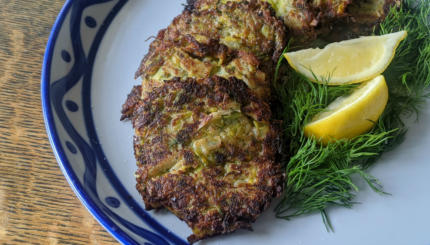“Which Jewish summer camp is right for my child?”
Day or overnight, traditional or specialty, religious or culturally Jewish… With so many options available, selecting the Jewish camp that’s right for your child may seem overwhelming, but it doesn’t have to be.
Behold your Jewish camp selection survival guide. Use these questions to narrow the options and determine which Jewish camp experience is right for your child.
Day camp or overnight camp?
At overnight camp, kids leave home for roughly 1-8 weeks and experience camp 24/7 – eating, sleeping, showering, playing, and connecting with fellow campers, staff, and Judaism in a parent-free environment.
Day camps, on the other hand, typically run Monday-Friday during work hours and allow campers to experience the fun and friendships of camp during the day, while they sleep at home.
Both day camp and overnight camp experiences can facilitate lifelong Jewish friendships, increased self-confidence, and a connection to the Jewish community. So how do you pick the format that is best for your child and your family?
- How old is your child? Day camps typically begin serving kids as young as 4 or 5 while most overnight camps require campers to be at least 7 or 8 years old to attend.
- Is your child comfortable spending the night at a friend’s house? Does being away from home excite and enrich your child or does it cause anxiety and tension?
- What is your budget? The cost of day camp is typically lower than the cost of overnight camp. However, many day and overnight camps offer scholarships. Reach out to camps to find out about financial aid and other discounts.
Is the camp’s program/structure a good fit for my child?
Ok, so now that you’ve determined day or overnight, you can just pick the camp your friend recommends, right? Actually, there are several other factors to consider.
- Does your child need structure or does he/she thrive on freedom, flexibility, and choice? Understand a typical day at the camp.
- Is your child active or does he/she prefer more relaxed activities? Find out the activities the camp offers.
- Does your child have special physical, intellectual, or emotional needs? Make sure the camp is able to provide the attention your child needs to enjoy and thrive in the program.
- Does your child like to do several different activities during the day or prefer to focus on one? Traditional camps embrace variety while specialty camps focus on a specific activity or theme. Some traditional camps include an element of choice that allows campers to select activities that interest them.
- Do you want your child to establish a “summer home” connection to a camp or to experience several different camps over the course of the summer? If the latter, consider how quickly your child adapts to new situations, schedules, friends, and authority figures. Also consider your ability to manage working with multiple camps.
How does the camp approach Jewish programming?
Judaism comes in more shapes and sizes than ever before. Just as individual synagogues and day schools embrace different approaches to Judaism, you’ll find that each Jewish camp has its own unique way of delivering Jewish content.
- Is the program religious (involving prayer, study) or culturally Jewish (exposing campers to Jewish cooking, art, dance, etc.)?
- Does/how does the camp include content about Israel?
- Are all the counselors Jewish? Are all the campers Jewish?
- Is the camp affiliated with a particular movement (Reform, Traditional, Orthodox?) or does it include a mix of campers from all Jewish backgrounds?
- Is the camp accepting of Jews of color, campers from LGBTQ families, and/or campers from intermarried families?
- Is the camp kosher?
- Does/how does the camp celebrate Shabbat?
- Is Jewish content integrated throughout everyday camp life or do campers experience Judaism only at specific times like Shabbat?
How does the camp screen, hire, and train staff?
High-quality staff are critical to the success of any camp. In addition to serving as positive role models, camp counselors may help your child with anything from tying a shoelace to sorting out a social situation to reacting to an injury. Great staff members love kids and have the skills necessary to give your child a safe summer to remember.
- What type of training do staff members receive before and during camp?
- Does the camp perform background checks on staff members?
- How old are the counselors?
- What is the staff return rate?
- What is the camper-to-counselor ratio?
Is this the community I want for my child?
If you are seeking a camp experience that becomes part of your child’s life for multiple summers and during the school year, make sure you are comfortable with the answers to these questions.
- What is the camper return rate? Do kids come year after year or does the camp provide a one-time experience?
- How will the camp meet your child’s needs as he/she ages?
- What percentage of counselors attended the camp as campers?
- What does the camp do to engage campers/camper families during the school year?
Still with me? We haven’t even covered safety/security, location, transportation, session length, reviews, enrollment size, or input from your child – all of which are important factors in selecting a Jewish summer camp.
Bottom line: We’re lucky to live at a time where there are countless options for summer fun. With a little homework, you can find the Jewish summer experience that meets the unique needs of your family.
Eileen Price is the Founder and Executive Director of In the City Camp, Atlanta’s coolest Jewish day camp for boys and girls ages 5-14.



